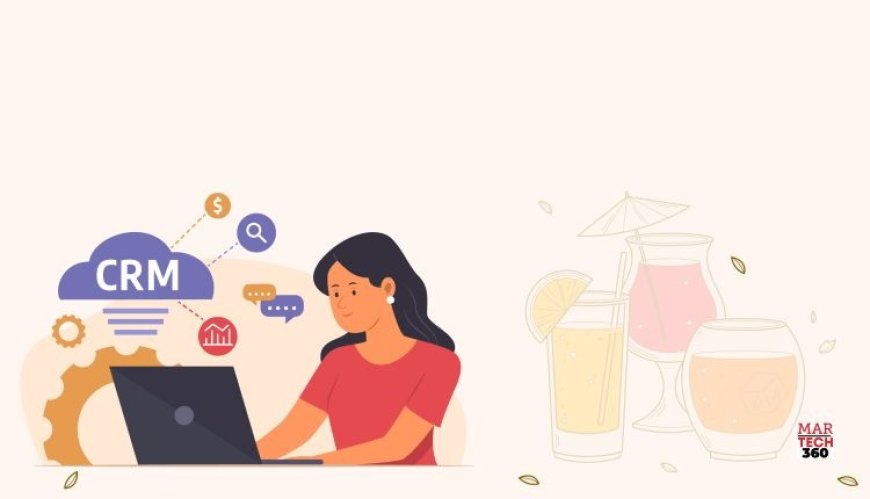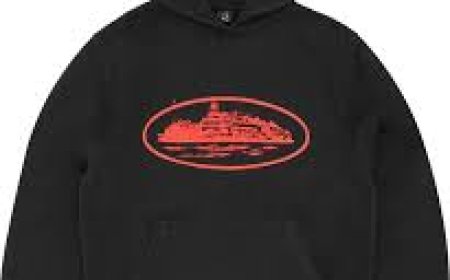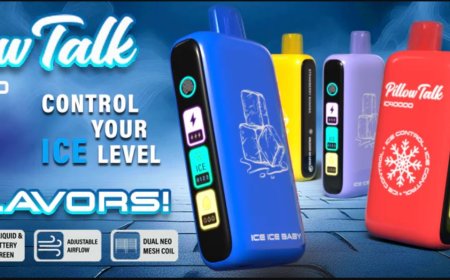Everything You Need to Know About CRM in the Beverage Industry
Did you know that around 79% of marketing leads don’t convert to sales without CRM? This statistic also applies to the food and beverage sector.

Did you know that around 79% of marketing leads don’t convert to sales without CRM? This statistic also applies to the food and beverage sector. As the beverage industry continues to rise in popularity, fueled by innovative ingredients and flavors, effective customer relationship management (CRM) has become an essential tool for success.
A Deloitte study revealed that 63% of consumers are more likely to trust and purchase from brands with strong social impact values. This underscores the importance of connecting with customers to foster brand loyalty. In today’s market, building customer relationships isn’t optional—it's a vital strategy for differentiating your business from competitors and standing out.
What Is CRM?
Customer Relationship Management (CRM) encompasses the strategies, practices, and technologies used by businesses to manage interactions with customers. In a company’s context, CRM includes all customer-facing processes such as sales, service, forecasting, and analyzing consumer behaviors and trends. The ultimate goal of CRM is to enhance the customer experience and build long-term relationships.
For the beverage industry, CRM is used to amplify positive experiences and maintain strong customer connections, ensuring repeat business. CRM strategies include tools like email campaigns, websites, direct mail, and telemarketing. In essence, CRM refers to the technological systems used to handle customer interactions across all stages of their journey—from awareness and education to purchase and post-purchase support.
Just like other sectors, the beverage industry benefits from a robust CRM strategy that fosters growth and improves business efficiency.
CRM for the Beverage Industry – Explained
CRM in the beverage industry replaces manual systems such as spreadsheets and databases used to track customer data. This advanced technology streamlines processes, making it easier to manage customer information, improve time management, and increase efficiency.
By implementing CRM, beverage businesses can better organize customer data, ensuring no vital information is overlooked. CRM tools provide a centralized point of information, which can be leveraged across departments like sales, business development, and customer service.
However, CRM software alone isn’t a guarantee for success. Without proper strategy and planning, businesses risk introducing unnecessary complexity. Avoiding common pitfalls in CRM implementation is crucial to ensuring seamless integration and maximizing its effectiveness.
Top CRM software options for the beverage industry include GoFrugal, BlueCart, and Poster POS, among others.
How CRM Drives Revenue in the Beverage Industry
CRM tools in the food and beverage sector have a significant impact on business operations. For instance, Coca-Cola uses CRM to enhance team collaboration and resolve customer issues efficiently. By tracking customer behavior on social media and analyzing purchase history, Coca-Cola tailors its strategies to meet current demands. The ability to access real-time consumer data on mobile apps helps the team address issues quickly and make informed decisions.
CRM also aids in understanding customer feedback and satisfaction levels. McDonald’s, for example, partners with Astute Solutions to scan regional restaurant data to identify potential issues and resolve them proactively.
Christopher Garrity, Senior Director of Customer Satisfaction at McDonald’s, notes, “CRM is an essential function for any large company, as it helps us meet the ever-changing demands of our customers through continuous innovation.”
How CRM Enhances the Beverage Industry
Integrating CRM software into beverage businesses offers a wide range of benefits, including:
- Faster Customer Service: CRM systems store vital customer information, such as past purchases and interactions, allowing support representatives to provide quicker and more personalized service.
- Customer Insights: Analyzing customer data helps identify trends and preferences, enabling businesses to tailor their marketing strategies.
- Loyalty Programs: CRM tools facilitate the development of loyalty programs that encourage repeat purchases and long-term customer relationships.
- Improved Collaboration: Centralized data allows seamless collaboration between sales, marketing, and customer service teams, increasing visibility and efficiency.
- Sales Optimization: CRM software provides detailed lead scoring to help sales teams identify high-potential prospects.
- Automated Marketing: CRM systems can automate personalized marketing campaigns based on consumer actions, delivering targeted emails and messages to drive customer engagement.
- Data-Driven Decisions: Integrated CRM tools provide valuable insights into customer behavior and purchasing patterns, which can be used to optimize marketing strategies and boost revenue.
- Effective Follow-Up: Automating follow-up processes ensures that no lead or customer is overlooked, enhancing retention and engagement.
Choosing the Right CRM for the Beverage Industry
Selecting the right CRM platform can be challenging due to the numerous options available. To make the best choice, identify the features your business needs and create a budget aligned with your goals. It’s important to compare different CRM vendors, read reviews, and consider the scalability and functionality of each option to ensure it supports your beverage business effectively.
Brewing Success with CRM
Adopting CRM technology requires a commitment from the entire organization over an extended period, but the benefits are well worth the effort. CRM enhances cross-departmental collaboration, improves customer interactions, and increases sales.
In the beverage industry, CRM plays a critical role in building strong, lasting customer relationships. By leveraging technology and data analysis, beverage companies can enhance customer loyalty, improve satisfaction, and ultimately drive growth.
The key to CRM success lies in personalization, seamless customer engagement, and consistent communication across all channels. By investing in CRM, beverage businesses can gain a competitive edge and establish a solid foundation for long-term success.
What's Your Reaction?






















